Thanks to its pioneering efforts, Semmelweis University was among the first European higher educational institutions that introduced binational programs. These programs allow primarily foreign students to follow the Semmelweis curriculum while undertaking their studies at the partner institution abroad.
Hamburg
Asklepios Campus Hamburg
Language: German
Staff: German, Hungarian
Diploma: M.D.
Start of cooperation: 2008
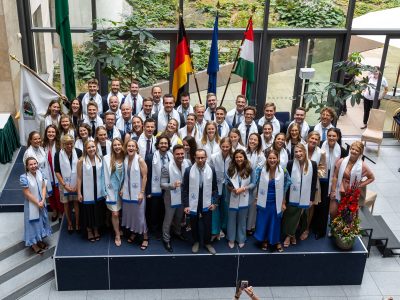 The exemplar cooperation between Semmelweis University and the Asklepios Medical School opens new horizons in European higher education. This new and unique education model provides Semmelweis students with the opportunity to continue their studies in Hamburg after having successfully completed two years of theoretical training in Budapest. The program at the Asklepios Campus entirely follows the Semmelweis curriculum and it provides the students with a Semmelweis diploma at the end of their studies. The Faculty of Medicine Asklepios Campus Hamburg is a binational faculty which operates within the supervision of the University’s Faculty of Medicine. This model was established based on the Amsterdam Treaty, which created a unique and successful example of cross-border education in Europe.
The exemplar cooperation between Semmelweis University and the Asklepios Medical School opens new horizons in European higher education. This new and unique education model provides Semmelweis students with the opportunity to continue their studies in Hamburg after having successfully completed two years of theoretical training in Budapest. The program at the Asklepios Campus entirely follows the Semmelweis curriculum and it provides the students with a Semmelweis diploma at the end of their studies. The Faculty of Medicine Asklepios Campus Hamburg is a binational faculty which operates within the supervision of the University’s Faculty of Medicine. This model was established based on the Amsterdam Treaty, which created a unique and successful example of cross-border education in Europe.
For further information please visit the following websites (in German):
www.asklepios.com/ach
https://www.asklepios.com/ach/studium-bewerbung/vor-studium/kosten/
Lugano
Lugano International Campus
Language: Italian, French
Staff: Swiss
Diploma: BSc
Start of cooperation: 2009
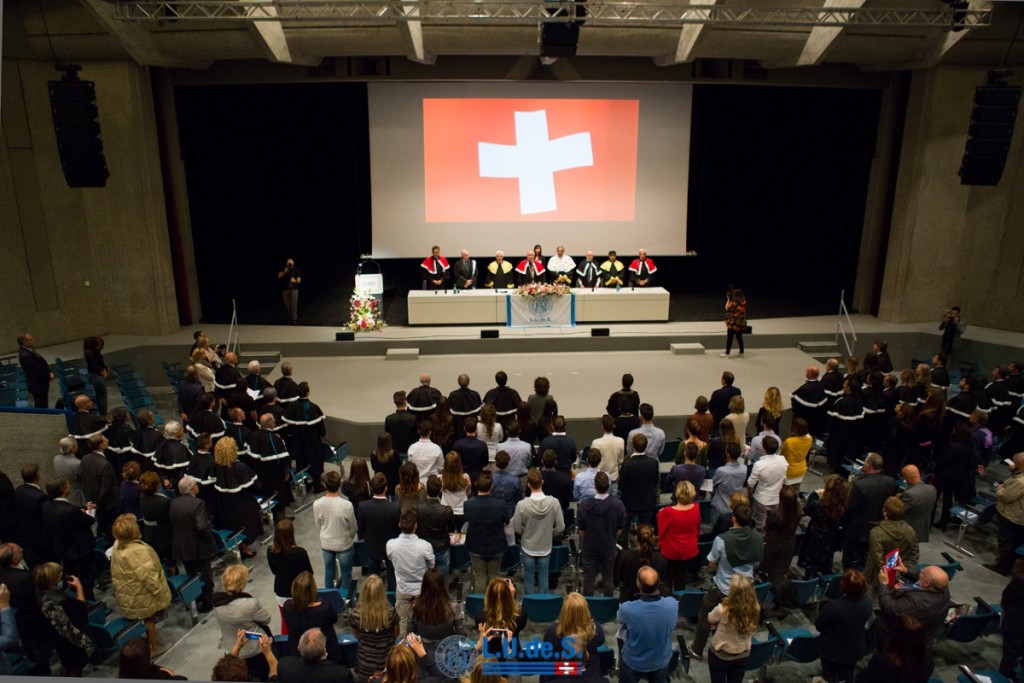 Semmelweis University’s cooperation with the former Lugano Libera Università degli Studi (L.U.de.S.) was created following the initiative of the Faculty of Health Sciences. The L.U.de.S. Physiotherapy BSc program is completely identical with the one offered at the Faculty of Health Sciences. Accordingly the program consists of 4 years and is based on both theoretical and practice-oriented courses. The program provides a diploma which is accepted and valid in the entire European Union. The Hungarian Accreditation Committee approved the initiative in 2009 upon which the program started with 19 students. The project’s success is highlighted by the fact that today there are 344 students enrolled in the program.
Semmelweis University’s cooperation with the former Lugano Libera Università degli Studi (L.U.de.S.) was created following the initiative of the Faculty of Health Sciences. The L.U.de.S. Physiotherapy BSc program is completely identical with the one offered at the Faculty of Health Sciences. Accordingly the program consists of 4 years and is based on both theoretical and practice-oriented courses. The program provides a diploma which is accepted and valid in the entire European Union. The Hungarian Accreditation Committee approved the initiative in 2009 upon which the program started with 19 students. The project’s success is highlighted by the fact that today there are 344 students enrolled in the program.
Bratislava
Bratislava – Health Management Academy
Language: Slovakian
Staff: Slovakian
Diploma: MSc
Start of cooperation: 2010
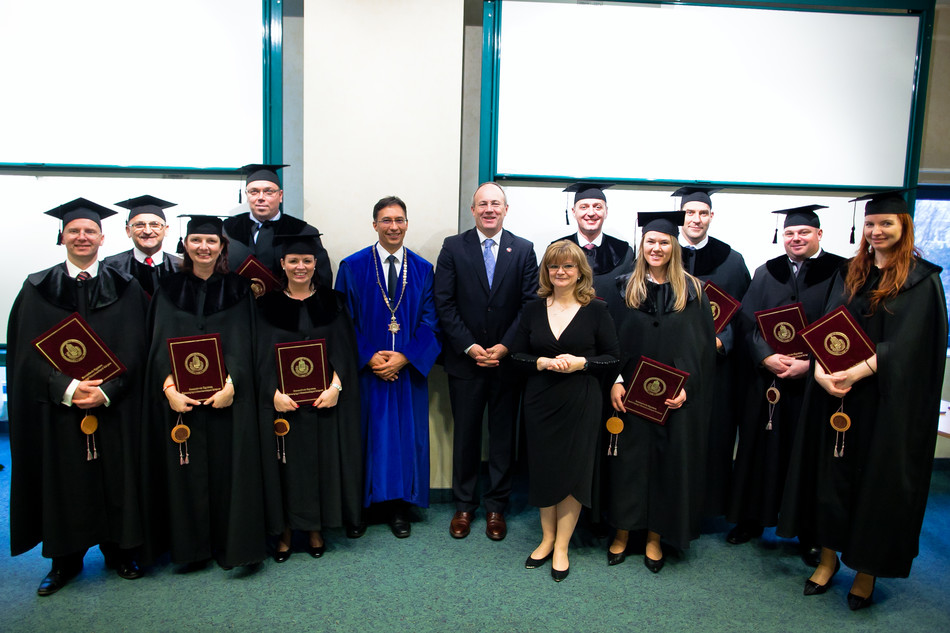 The Bratislava based Health Manager MSc program was established thanks to the collaboration between Semmelweis University’s Faculty of Health and Public Services and the Slovakian Health Management Academy. The program which is taught in Slovakian was launched in 2010 and the first group of students obtained their MSc diploma in 2013.
The Bratislava based Health Manager MSc program was established thanks to the collaboration between Semmelweis University’s Faculty of Health and Public Services and the Slovakian Health Management Academy. The program which is taught in Slovakian was launched in 2010 and the first group of students obtained their MSc diploma in 2013.
Ilieni
Ilieni
Language: Hungarian
Staff: Hungarian (András Pető Faculty)
Diploma: BA (Conductor with specialization in kindergarten or primary school education)
Start of cooperation: 2018
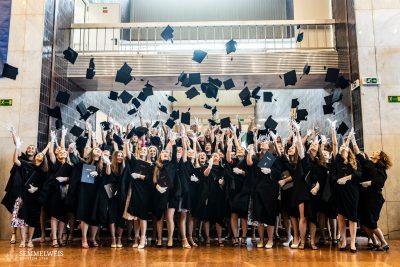 The aim of the full-time, 8-semester training is to educate pedagogical professionals who are capable of developing physically challenged children with special needs of any age, using conductive education.
The aim of the full-time, 8-semester training is to educate pedagogical professionals who are capable of developing physically challenged children with special needs of any age, using conductive education.
The theoretical training is organized in blocks, while the practical training is organized in 3-week cycles in stages.
The aim of the specialization in kindergarten education is to train conductors who are prepared to educate and develop kindergarten children with disabilities (integrated / inclusive groups) as well as to implement the relevant kindergarten education program. The goal of the specialization in primary school education is to train conductors who are prepared to educate children with special needs in the 1st-4th years (integrated / inclusive classes) and to implement the relevant curriculum.
Subotica and Senta
Subotica and Senta
Language: Hungarian
Staff: Hungarian
Diploma: certificate (Conductor assistant)
Partner institution: VM4K – László Szekeres Foundation
Start of cooperation: 2019
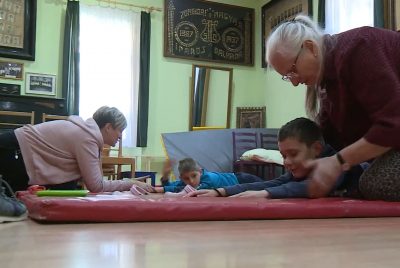
The aim of the 4-semester 120-credit course is to educate pedagogical professionals who are capable of developing physically challenged children with special needs of any age, under the direction of a conductor (with specialization in kindergarten or primary school education) using conductive education.
The program is a practice-oriented training. Practical training (school observation, group and individual practice) provides graduates with an insight into advanced procedures and methods for developing the personality and mobility of disabled people of all ages. The theory is applied to practice in the frame of individual and group sessions, where educational skills, technical skills and special conductor skills are also developed.
The venue for the theoretical, block-based training is Subotica, while the practical training is organized in stages in Senta.